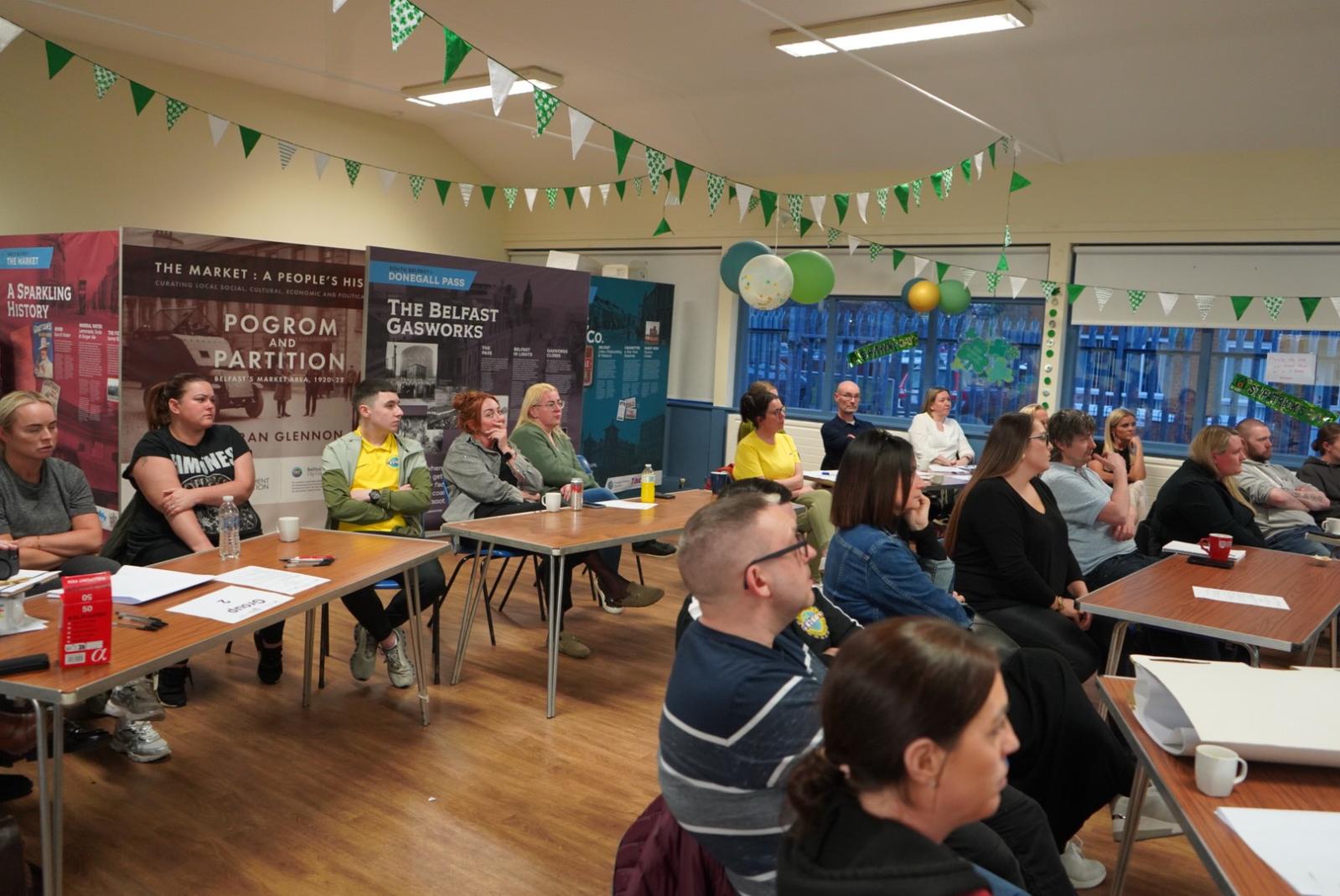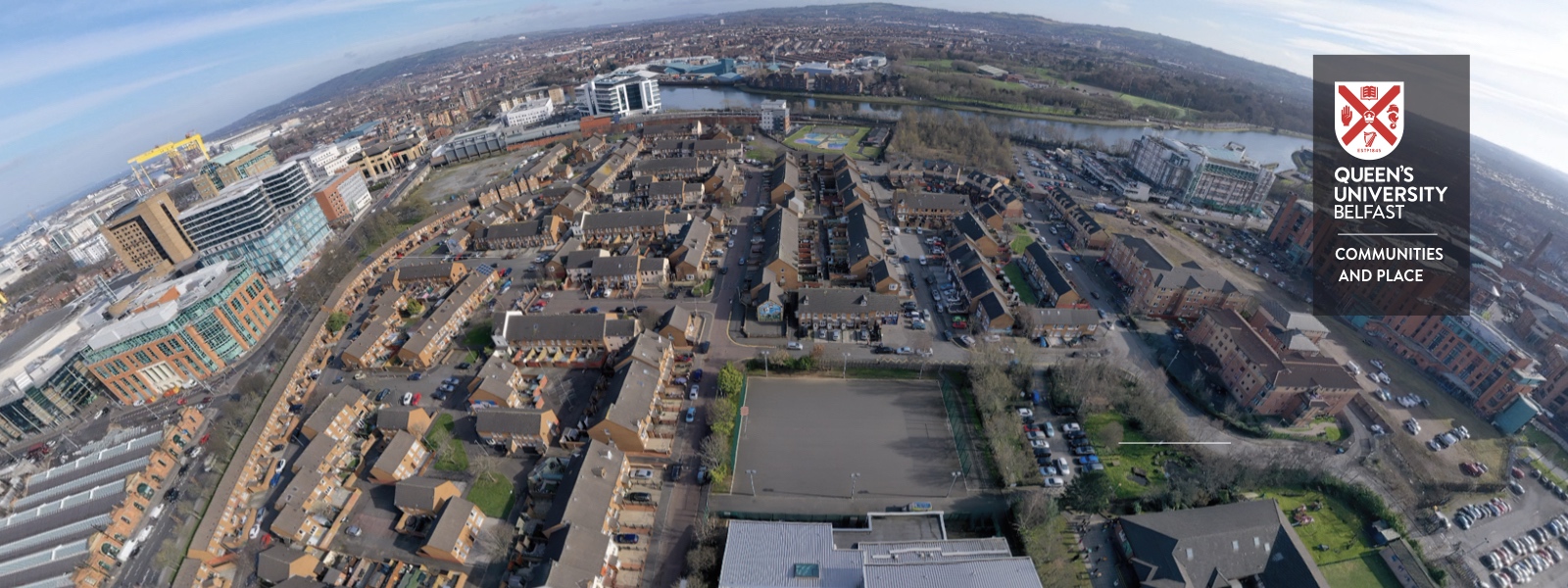Responding to Community Need: Co-Designing an Intervention for Young People’s Substance Use
On the evening of 19 March, Dr Stephanie Maguire led a co-design workshop with academics and community stakeholders to initiate the development of a community-driven, co-designed intervention for young people’s substance use.
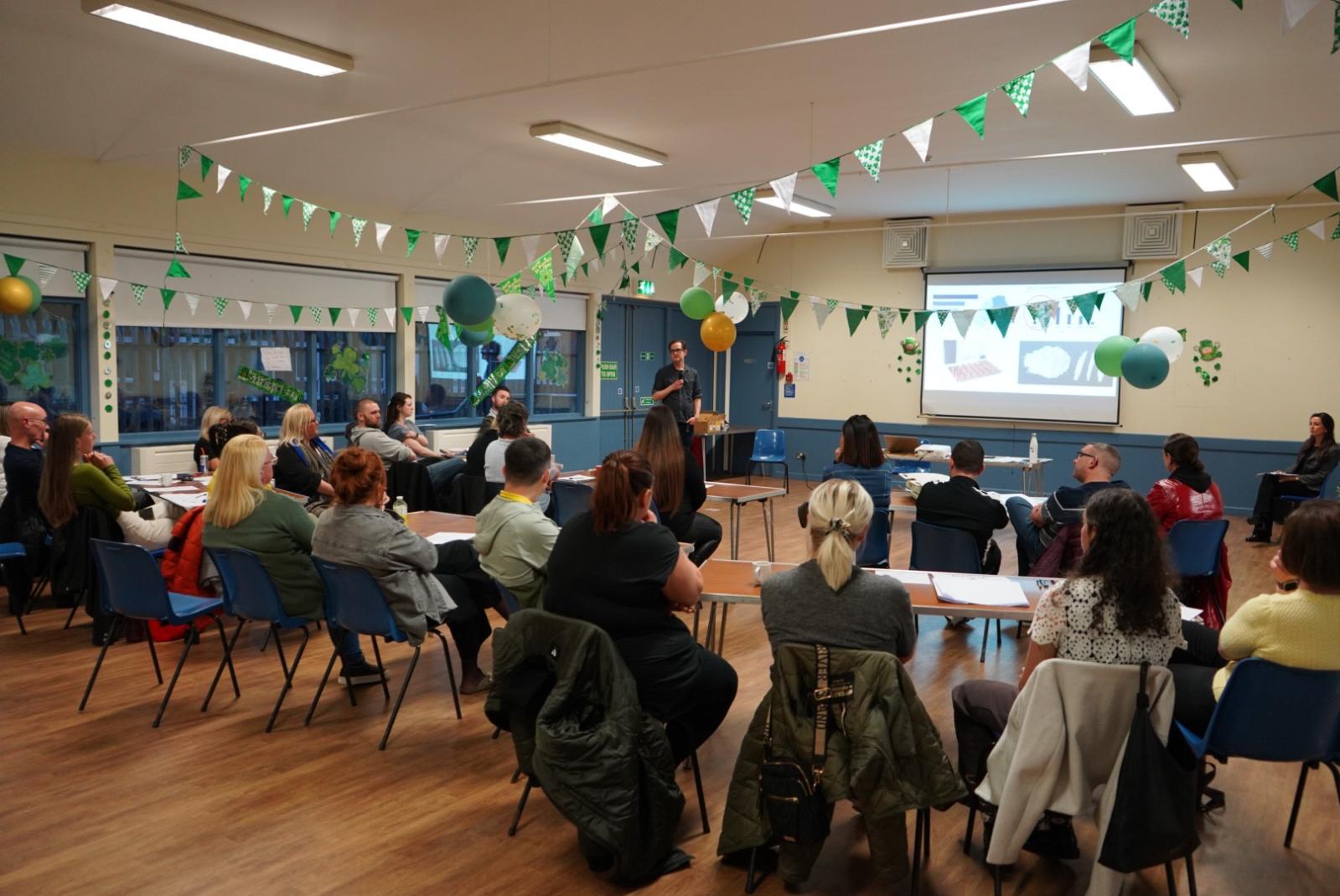
The session was delivered in the Market Community Centre, and brought together approximately 30 participants, including researchers, service providers, community stakeholders, and Market residents; integrating lived experience and expertise to explore the potential role of communities may play in early intervention and prevention.
Stephanie Maguire, QCAP’s Research Fellow in Mental Health, opened the session by stating:
“Following ongoing conversations in the Market with residents around tackling substance use we will begin to co-design a substance use intervention for young people in the Market community. It is crucial that we collaborate with communities to generate tailored solutions to persistent place-based challenges."
QCAP director, Professor Kathryn Higgins, provided an overview of QCAPs partnership with the Market and the existing evidence and experienced-based responses developed to date under the banner of Tackling Substance Use Together; including: Naloxone Training, Family Support Group, and an Adult Substance Use Education Programme. Market Resident and Youth Worker, Rachel Stitt, shared her experience and involvement in the co-design and implementation of the adult Substance Use Education programme in the Market community. This programme is novel in that it is the culmination of a schedule of work undertaken by QCAP and the Market Development Association (MDA), with Market residents, to respond to community level need, increase knowledge and improve understanding around substance use.
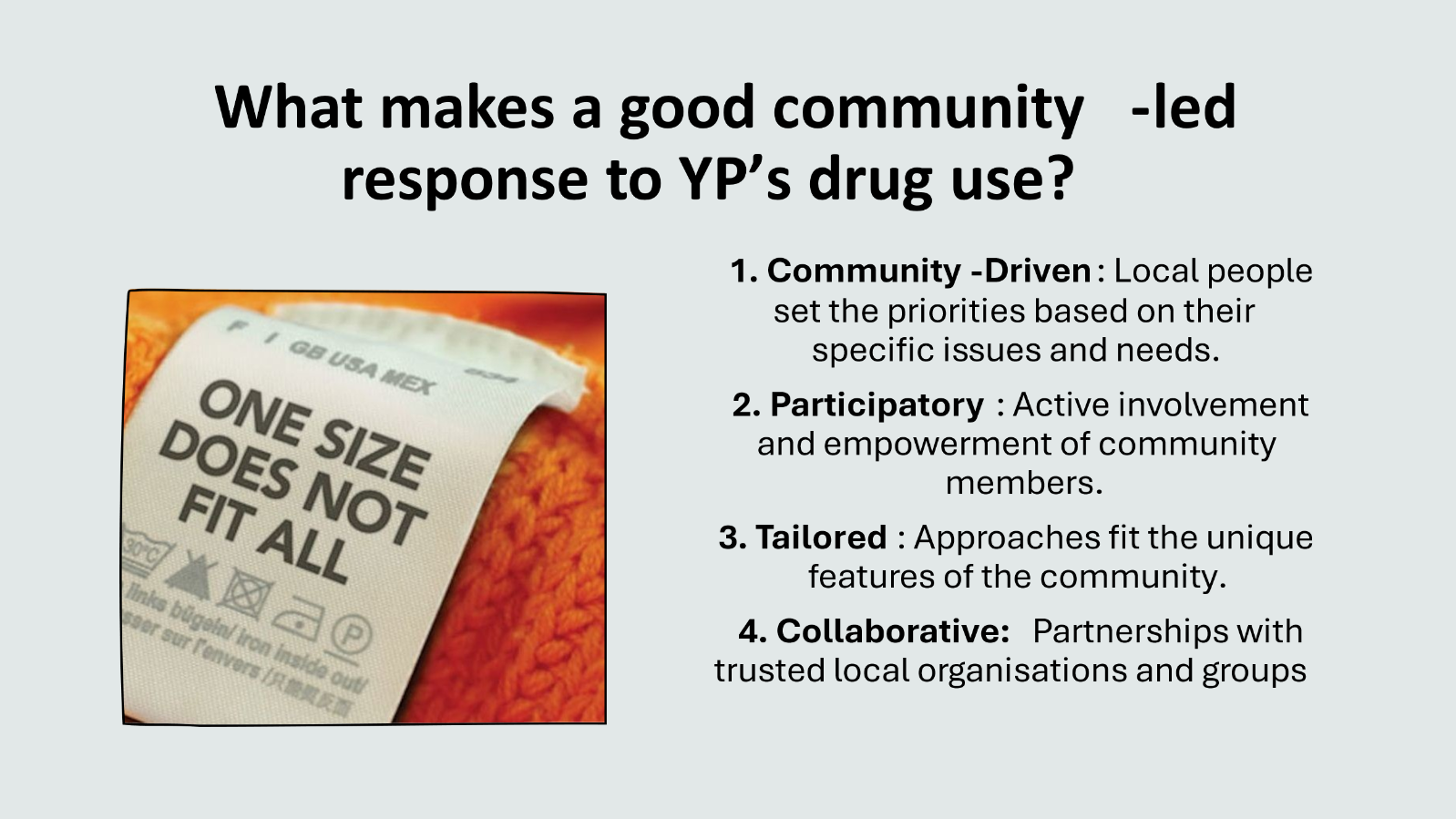
Guest speaker Professor Harry Sumnall (Liverpool John Moores University) delivered an insightful and interactive presentation on the drug landscape in Northern Ireland. He discussed the influence of social media, factors affecting substance use levels and the role of substance use education. Drawing on international evidence, Professor Sumnall provided insight into what is working in communities and shared ‘top tips’ on how communities can respond effectively to young people’s substance use.
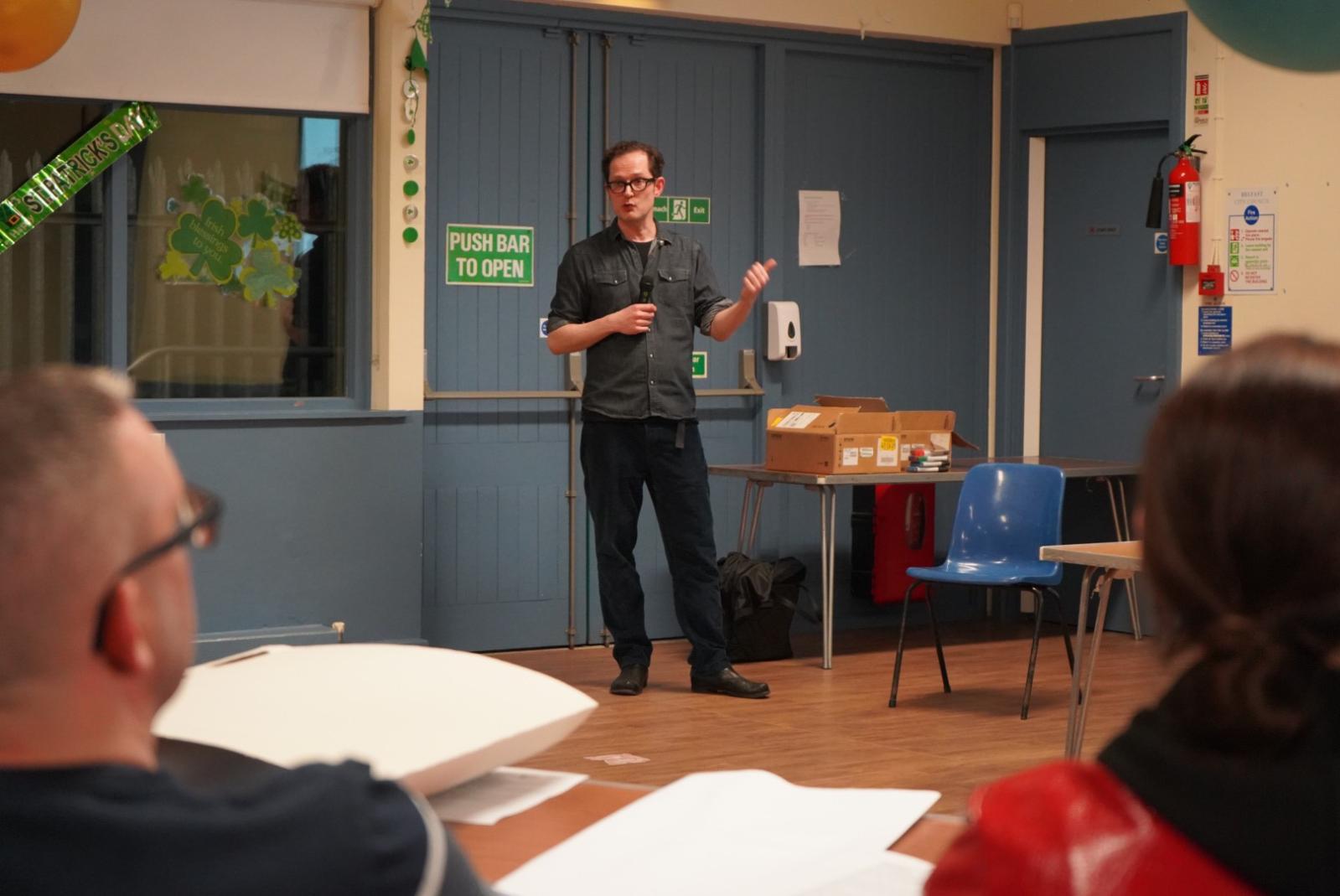
The co-design workshop featured two breakout sessions designed to involve and actively engage participants to brainstorm insights and generate ideas. The first session focused on identifying community concerns and needs related to young people’s substance use, while the second explored potential intervention ideas and key components necessary for an effective response. Mentimeter was used throughout the sessions to facilitate real-time feedback and foster meaningful discussions.
This workshop marks the first step in the co-design process to develop a community-led intervention that supports young people and addresses substance use challenges in the Market community.
This co-designed intervention for young people was funded by Queen’s University Civic Contribution Fund, which was established to provide funding for staff and students, to allow them to develop and implement projects that make diverse and impactful contributions to our society.
